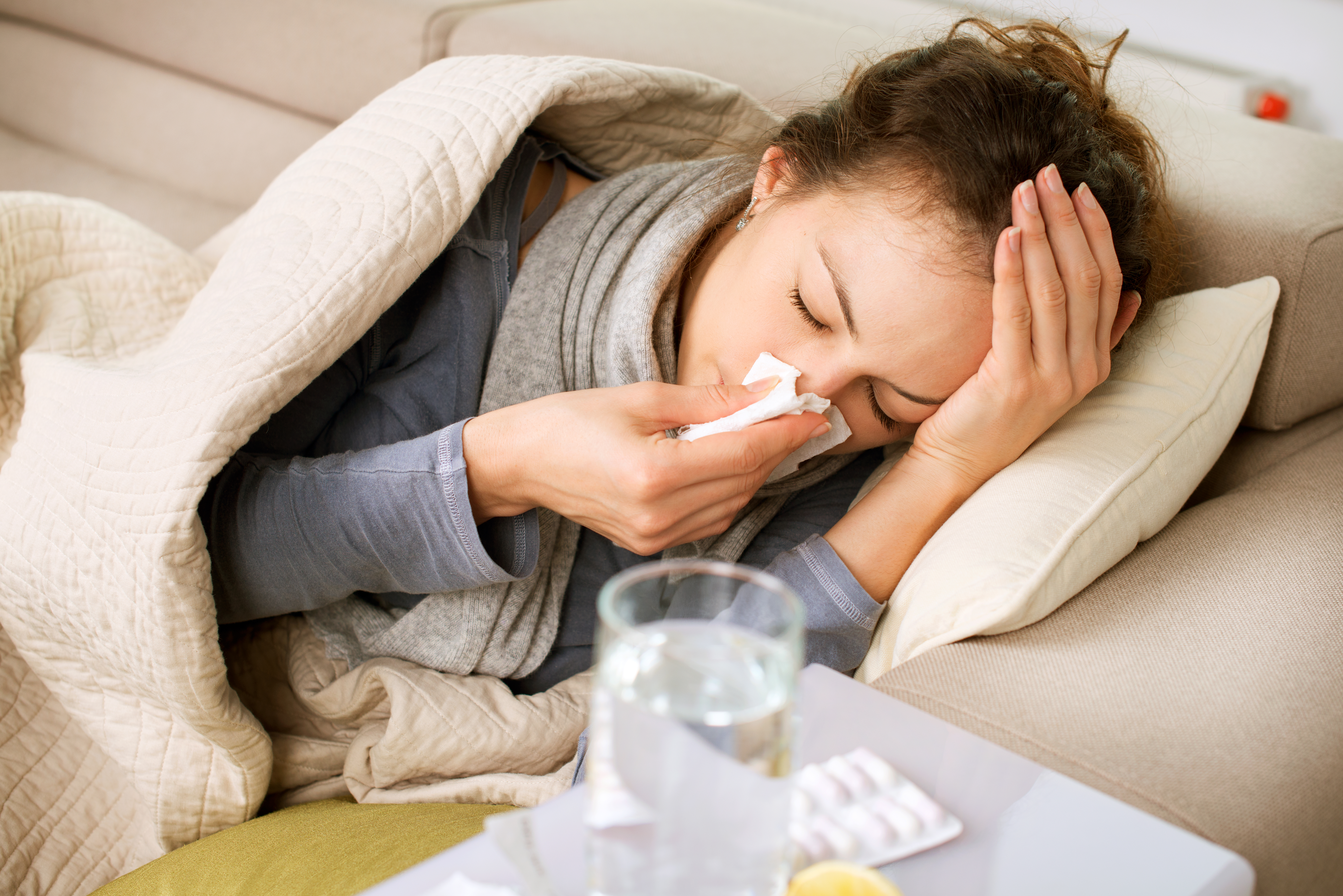The CDC reports that respiratory viruses and COVID-19 rates are spiking across the United States.
No one likes getting sick. Taking the proper precautions to keep yourself and your family healthy is essential. Use these eight tips to prevent catching the flu or other illnesses.
1. Get Your Annual Vaccinations
Your annual flu shot is essential to staying healthy year-round and keeping the flu from spreading to others you may come into contact with.
The CDC recommends yearly vaccination for each person older than six months, near September to October or when flu season typically begins in your area. However, from late 2023 to early 2024, it was found that only 43.9% of adults reported getting the flu vaccination. With programs like WastewaterSCAN showing spikes in influenza, RSV, and COVID-19, it’s better to get your shots later than never and protect your health from these illnesses.
2. Start Eating a Healthy Diet
A healthy diet is an excellent step in reducing the chances of getting sick.
Related Post: How COVID Has Shown Us We Need to Focus on Wellness—Now More than Ever
A well-balanced diet of leafy greens, colorful fruits and vegetables, whole grains, and lean meats can boost your immune system and keep you out from being under the weather.
3. Get Enough Exercise
We’ve all heard that regular exercise benefits our health. Getting enough exercise plays a crucial role in maintaining a healthy immune system, which, in turn, helps prevent illness.
Staying active can be a great stress reducer and has even been proven to boost white blood cells, which fight infections and sickness. These cells circulate more rapidly, detecting and responding to potential threats more effectively.
With respiratory illness on the rise, regular physical activity contributes to improved respiratory function. It enhances lung capacity and efficiency, making it easier for the respiratory system to clear pathogens and pollutants. This, in turn, reduces the likelihood of respiratory infections.
Even moderate exercise like walking, golfing, and cycling can greatly benefit long-term health while strengthening your immune system.
4. Prioritize Getting Enough Sleep
Most adults should aim to achieve eight hours of sleep for a good reason! A restful night's sleep has been shown to impact your immune system.
Related Post: Staying Healthy in Retirement
When you don’t get enough rest, the number of antibodies and cells that fight disease is reduced. During sleep, the body produces and releases cytokines, proteins that play a crucial role in immune function. These cytokines help regulate immune responses, including the body's ability to fight off infections.
When you are sick, your body uses periods of sleep to manage your illness, so continue aiming for a whole night of restful sleep. This restoration process is essential for overall health and ensures the body is ready to respond to potential threats.
5. Manage Your Stress
Although it’s easier said than done, getting your stress to a lower level is necessary for preventing and fighting off the flu. Dealing with high stress levels over time can negatively affect how well you deal with getting sick.
To manage stress, consider setting aside time to unwind, talk through your feelings, and avoid unhealthy coping mechanisms like alcohol.
6. Wash Your Hands & Keep Them Away From Your Face
We’ve heard time and time again how important it is to wash your hands, and it’s true! Washing your hands prevents the spread of germs and protects you and those around you from illnesses like the flu.
It’s also essential to keep your hands away from your face. Your hands come into contact with everyday items that are dirtier than we think, like gas pumps, money, and door handles. Putting your hands near your face brings these surfaces closer to your eyes, nose, and mouth and could get you sick.
7. Disinfect Household Surfaces
During cold and flu season, you should disinfect objects and surfaces you encounter. This could be wiping down counters, handles, and light switches at home.
It’s also important to disinfect personal devices like your cell phone. Most people bring their phones everywhere, meaning they’re likely to come into contact with various germs.
8. Stay Home When Sick and Schedule a Telehealth Appointment
Most importantly, when you are sick, stay home! When you come into contact with others while sick, you risk spreading the flu to them.
This time of year especially, be mindful of avoiding people sick with the flu and take precautions like physically distancing yourself from crowds. It might be best to avoid large gatherings entirely when possible for at-risk groups like seniors or people with autoimmune diseases.
Additionally, you can consult with your concierge physician from your home via a telehealth appointment, promoting a comfortable and stress-free experience, especially when you're not feeling well.
The CDC recommends wearing a face mask if you work in an environment where you’re likely to come into contact with sick people.
Learn More Health Tips From Experts
If you’re concerned about becoming sick, you can contact your Castle Connolly Private Health (CCPHP) Physician at any time or schedule a same or next-day appointment.
For more health and wellness tips, Castle Connolly Private Health Partner’s SENs Solution offers podcasts, newsletters, webinars, recipes, and blogs written by experts in their respective fields.


